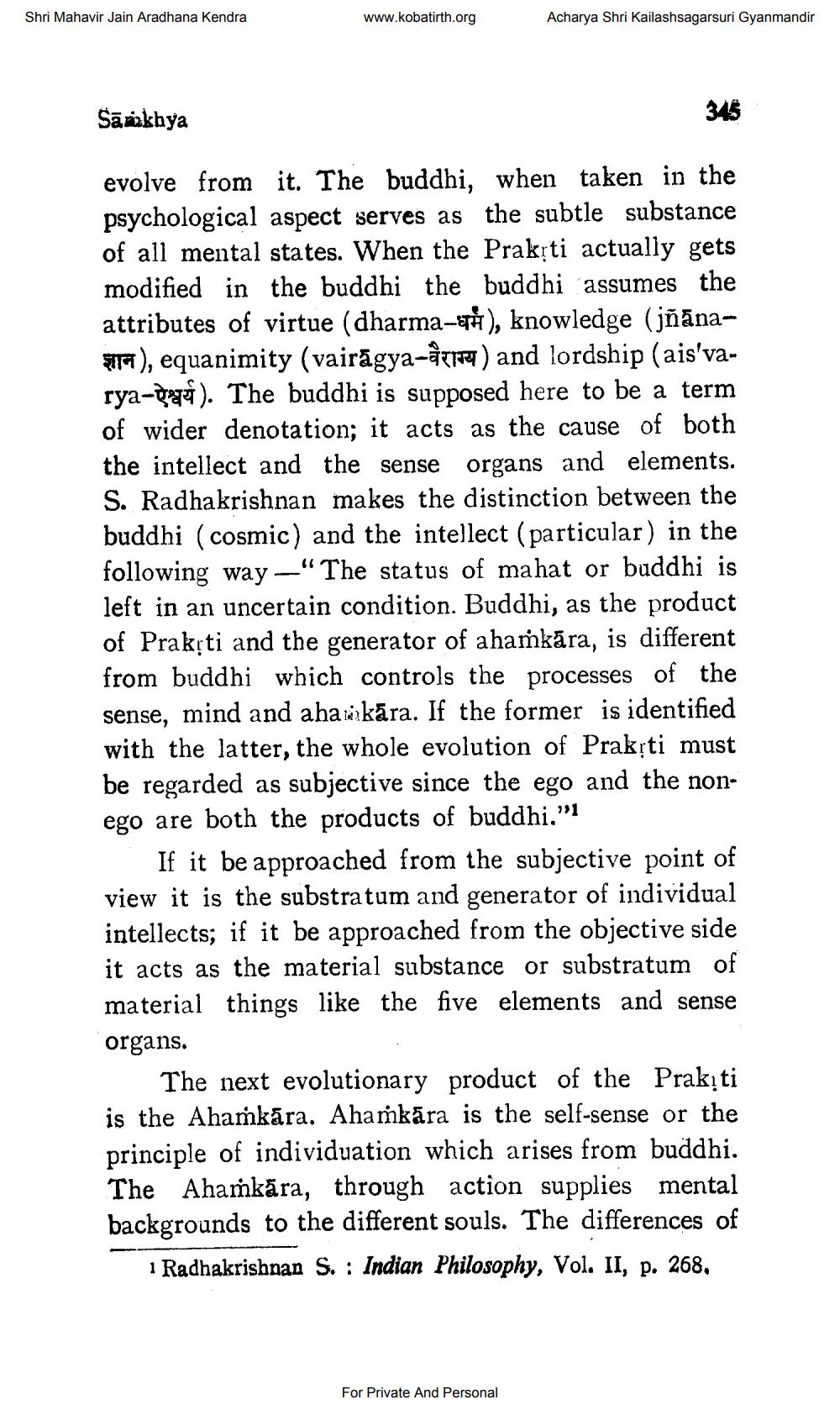________________
Shri Mahavir Jain Aradhana Kendra
www.kobatirth.org
Acharya Shri Kailashsagarsuri Gyanmandir
Samakhya
345
evolve from it. The buddhi, when taken in the psychological aspect serves as the subtle substance of all mental states. When the Prakrti actually gets modified in the buddhi the buddhi assumes the attributes of virtue (dharma-eTÅ), knowledge (jñāna
TA), equanimity (vairāgya-atira) and lordship (ais'varya-1 ). The buddhi is supposed here to be a term of wider denotation; it acts as the cause of both the intellect and the sense organs and elements. S. Radhakrishnan makes the distinction between the buddhi (cosmic) and the intellect (particular) in the following way _“The status of mahat or buddhi is left in an uncertain condition. Buddhi, as the product of Prakịti and the generator of ahamkāra, is different from buddhi which controls the processes of the sense, mind and ahamkāra. If the former is identified with the latter, the whole evolution of Prakịti must be regarded as subjective since the ego and the nonego are both the products of buddhi.”!
If it be approached from the subjective point of view it is the substratum and generator of individual intellects; if it be approached from the objective side it acts as the material substance or substratum of material things like the five elements and sense organs.
The next evolutionary product of the Prakịti is the Ahařkára. Ahamkāra is the self-sense or the principle of individuation which arises from buddhi. The Ahamkāra, through action supplies mental backgrounds to the different souls. The differences of
1 Radhakrishnan S. : Indian Philosophy, Vol. II, p. 268,
For Private And Personal




